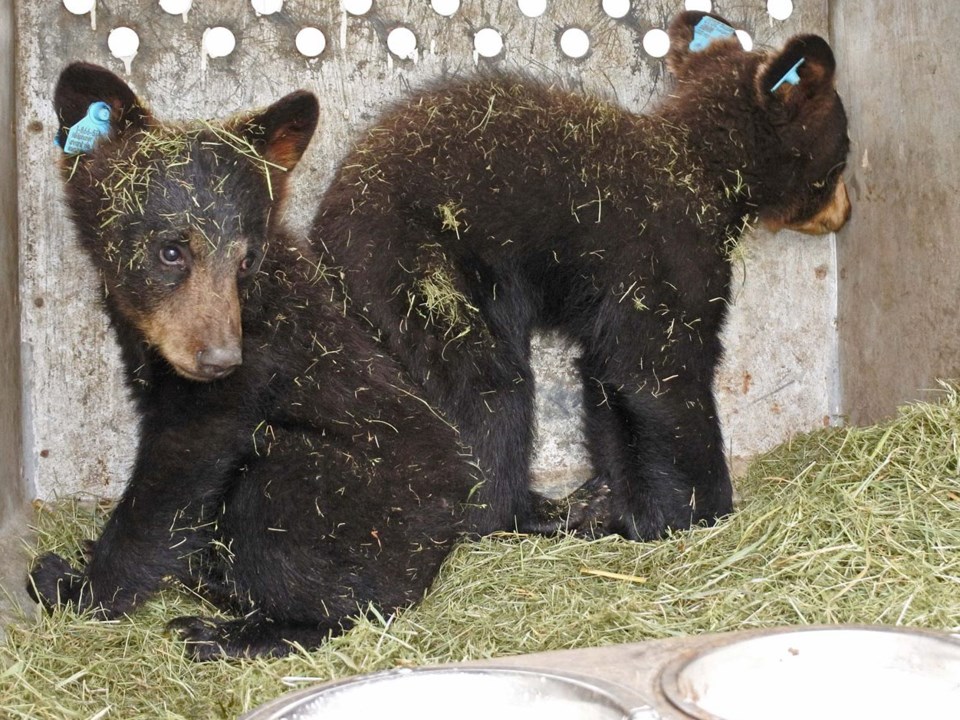The death of a mother bear near Blind River early Tuesday morning is just the beginning of the story for her two young cubs, who will be rehabilitated and released back into the wild next year.
Two black bear cubs were rescued by Ministry of Natural Resources and Forestry (MNRF) staff about 1 a.m. Tuesday, after their mother was struck and killed by a vehicle travelling on Highway 17.
Arrangements were made to have Mike McIntosh, founder and director of the Bear With Us Sanctuary and Rehabilitation Centre, pick up the recently-orphaned cubs.
“The credit goes to MNRF personnel,” said McIntosh.
The organization has rehabilitated over 400 bears in the 24 years it has been in operation.
In an average year, McIntosh says his organization will take in about 20 to 25 bears, but this year has been especially harsh.
“This past year was a very hard year on bears because of the lack of berries. More mother bears were killed as a result of that, so we are double that [number of orphaned cubs] right now,” said McIntosh.
Mother bears being hit by cars is relatively rare, said McIntosh, versus the number of cubs he receives due to hunting incidents.
The cubs received by the sanctuary are about five and a half months old.
McIntosh said he can pinpoint the age because black bear cubs are always born in January.
“They don’t vary very much. There’s no such thing as a cub being born in February or March,” he said.
Black bear cubs separate from their mothers at about one and a half years of age, so in about a year’s time McIntosh plans to release the bears back into the wild near where they were originally found.
In the meantime, the bears will be rehabilitated in the sanctuary, located in Sprucedale, Ontario.
The sanctuary is not open to the public and is staffed only by McIntosh and one volunteer.
“We minimize the amount of human interaction as much as possible, because bears are a species that is naturally afraid of what they don’t understand or are not familiar with. The worst thing we could do is get them accustomed to a whole bunch of people seeing them,” said McIntosh.
